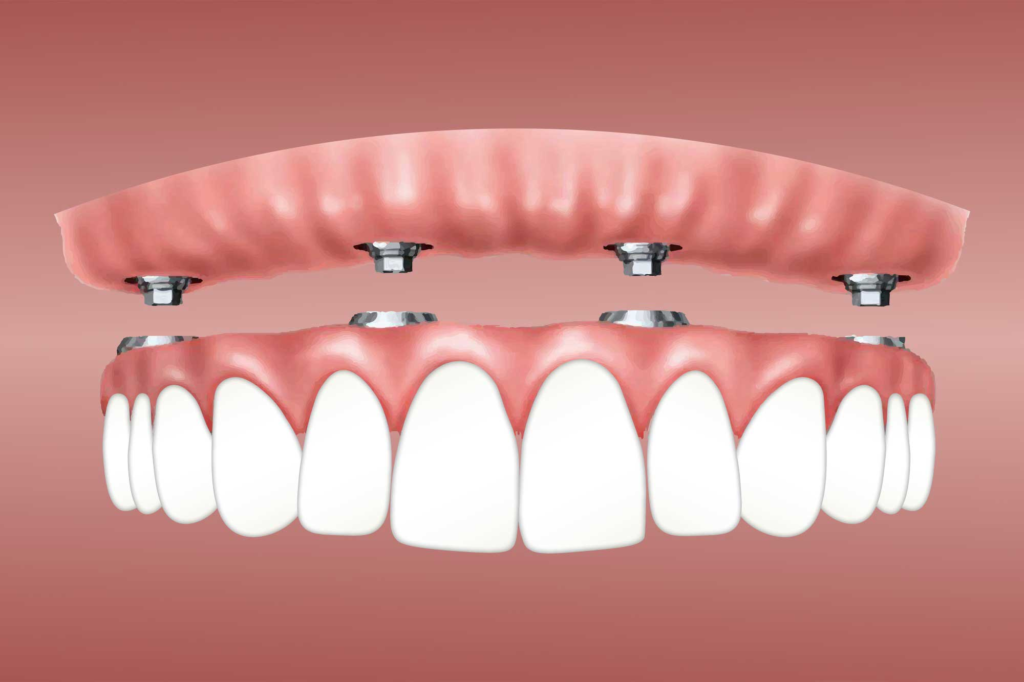Dental implants are a popular alternative to removable dentures or bridges for fixing deteriorating or missing teeth.
Dental implants feel and fit like natural teeth, making them the new standard for tooth replacement. Generally made of titanium metal, these implants are fused with the jawbone to serve as the new root for a bridge, denture, or crown.
If you’re planning to get dental implants yet unsure about this dental procedure, here are some of the things you should know:
Dental Implant Procedure Isn’t Painful

Dental implants are typically done under local anesthesia to make the process as comfortable as possible. When the anesthetic wears off, patients may experience discomfort, which is normal and can be managed using over-the-counter (OTC) pain medications.
However, most dentists know that patients want to avoid pain as much as possible, so they take a gentle approach and equip patients with the necessary post-operative knowledge to speed up recovery and healing.
Dental Implants Function And Look Like Natural Teeth

Dental implants are good when they come close to natural teeth in terms of function, look, and feel. With a titanium root, the tooth is stable and long-lasting.
It means you can chew and bite with the same force as your natural teeth while your dental implants remain intact.
For those with multiple missing teeth, All on 4 dental implants are ideal because they are designed to provide stable support without putting too much pressure on the jaw.
Dental Implants May Not Require Bone Grafts

Some patients are worried about bone graft surgery. However, not all patients will need it. Bone grafts are only necessary if your jaw is too thin or soft to support the implants.
It may happen if you’ve had missing teeth for a long time or you’re suffering from osteoarthritis or other degenerative illnesses.
If you don’t want to undergo bone graft surgery, ask your dentist for an alternative.
Dental Implants Need Protection From Gum Disease
Regardless of the type of dental implants you choose, it’s essential to remember that they’re also susceptible to oral health issues, like gum disease.
Lapses in routine dental care may facilitate the spread and growth of gum disease and may even compromise your new teeth. Implants may be more at risk of plaque-related problems than natural teeth.
Caring for dental implants is simple. You only need to do the following:
- Floss after brushing.
- Brush twice a day.
- Use an antibacterial mouthwash.
A healthy dental routine can help free your dental implants from gum disease. For other dental implant care tips, ask your dentist.
Dental Implant Procedures May Take Months
This doesn’t mean you must visit the dental clinic for several months in a row. It refers to the time needed for healing after the dental implants are placed but before some components like crowns are placed.
Once dental implants are inserted in your jawbone, the surgical site must completely heal first, and the implants must fuse well with the surrounding bone before more steps are taken.
Generating new bone in your jaw takes the most time, while crown placement and the actual implantation are straightforward.
On average, the entire procedure will take about six months to a year. While others may view it as inconvenient, some patients think the advantages of implants outweigh the delay.
Dental Implants Have Pros And Cons
Like every dental procedure, there are pros and cons to getting dental implants. For example, infections may happen when your dentist doesn’t follow the proper cleaning procedures. Minor bleeding, bruising, and swelling are also some common post-op issues.
The cost of dental implants also tends to be expensive. However, such disadvantages can be avoided if you do the following:
- Choose a reliable dentist.
- Have dental insurance.
- Follow the after-treatment recommendations provided by your dentist.
Although dental implants have some downsides, the benefits make them a worthwhile investment. As mentioned, since dental implants look and feel like natural teeth, you can talk and eat normally. They may even improve your jaw bone’s strength.
Conclusion
Dental implants can help you achieve your brightest smile and keep the natural shape of your face. Like other dental treatments and procedures, it can be nerve-wracking to get a dental implant, especially if you’re clueless about how it works.
By keeping the above things in mind, you’ll know whether or not dental implants are for you. If you’re still confused, don’t hesitate to talk to your dentist to help you decide wisely.

Jean Smith is a fitness enthusiast and blogger who focuses on fitness and a healthy lifestyle. She is passionate about assisting people in living healthier lifestyles and is constantly on the lookout for new and creative methods to stay fit and healthy. Her articles are excellent resources for anyone interested in improving their health and fitness.
